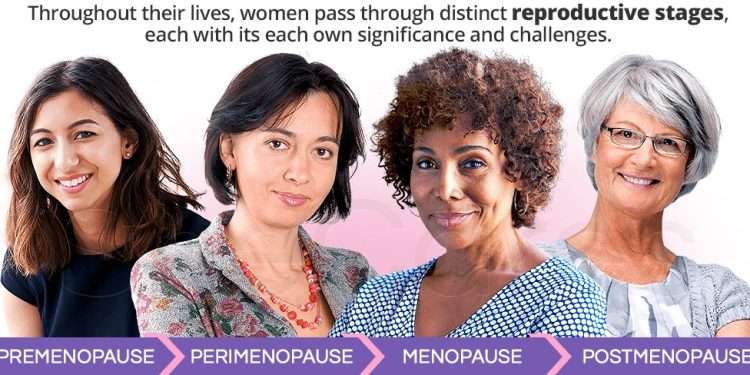The transition to menopause, which is also known as perimenopause (which literally means “around menopause”), refers to both the time leading up to menopause as well as the actual menopause itself. Menopause, on the other hand, is a term that is commonly used to refer to the complete transition.
Although perimenopause often begins in a woman’s forties, some women experience it far into their sixties. The cessation of menstruation often occurs in a gradual manner. As a result of the inconsistent synthesis of hormones, a woman can go without her period, bleed at strange times, or experience very heavy periods. A very tiny percentage of women experience an abrupt cessation of menstruation as if it were to happen overnight.
According to the Menopause Guidebook, “the transition through menopause is unique to each woman who goes through it.” In addition to this, it says that “the most frequent symptom associated with menopause is the hot flash (also termed a hot flush”), which may be followed by a cold chill. ” These symptoms may make it difficult to sleep and drain your vitality. How long does it take for the soreness to go away? “Some women suffer a few hot flashes for a year or two around the time of the menopause transition,” states the book The Menopause Book. Others are affected for a considerable amount of time, and a very small fraction of those affected report experiencing intermittent hot flashes for the remainder of their lives. *
The fluctuation of a woman’s hormones may lead her to feel sadness, mood swings, weepiness, poor focus, and memory lapses. A woman may also experience these symptoms as a result of mood swings. In light of this, it is said in The Menopause Book that “it is exceedingly unusual that any one woman will get slammed with everything.” In point of fact, some people have very few or even no difficulties or discomforts.
How to Deal with It
Modifications to one’s way of life, however minor, might alleviate some of their symptoms. Those who smoke, for instance, may find that giving up tobacco reduces the number of hot flashes they experience. Changes in diet, such as restricting or even avoiding alcohol, caffeine, and spicy or sugary meals, which are known to provoke hot flashes, have been shown to be beneficial for a large number of women. It goes without saying that maintaining healthy eating habits, which include consuming a diet that is both balanced and diverse, is essential.
The reduction of menopausal symptoms can also be greatly aided by regular physical activity. For example, it can help reduce sleeplessness and promote considerable changes in mood, in addition to fostering significant increases in bone strength and overall health. *
Be Transparent in Your Exchanges
Rondro, who was interviewed before, was reported as saying, “There is no need to suffer in quiet.” If you are honest and transparent with the people you care about, they won’t be as concerned when they find out what’s going on with you. In point of fact, they might have a greater capacity for patience and understanding. According to 1 Corinthians chapter 13, verse 4, “Love is patient and kind.” —The translation of the Good News.
Prayer is helpful for a lot of different kinds of women, including the ones who are suffering from the loss of their fertility. The Bible gives us the assurance that “[God] comforts us in all of our sorrows.” (First Corinthians chapter one verse four of the New English Bible) The understanding that the transition towards menopause is just transitory is another source of consolation. After that, women who continue to take good care of their health may discover that they have more energy and are able to enjoy many more years of a life of high quality.









